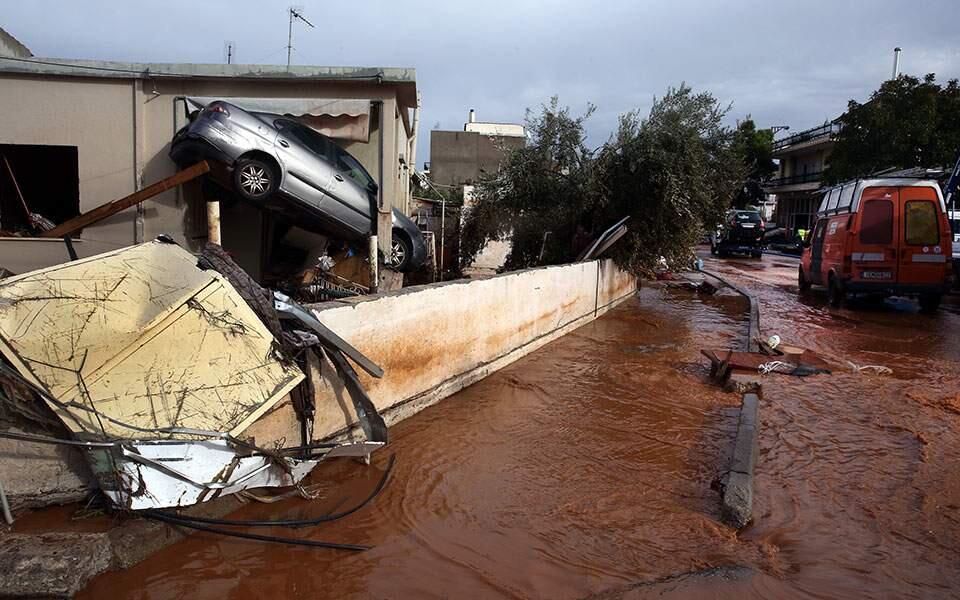“An event like the recent Greek flood cannot be called a ‘natural disaster’ without recognising the man-made causes exacerbating such events,” according to scientists participating in the 7th annual general assembly of the European Network of Scientists for Social and Environmental Responsibility (ENSSER) held in Athens.
In a press release on Thursday, the scientists taking part, highlighted the role of climate change in the recent disastrous floods in Mandra, Attica, expressing sympathy and solidarity with the flood victims.
Participating scientists at the meeting, from many European nations, discussed this event and the factors increasing its severity, as well as similar ones elsewhere in the world, releasing the following statement:
“Greece is one of the areas worst affected by climate-change effects. It is well documented that these include an increase in extreme weather events like severe heat and drought followed by devastating floods. Greece has just suffered from such a series of events: this historic flood followed last year’s extreme heat with temperatures exceeding 40°C and drought. This has not only cost the lives of 20 people but has destroyed and disrupted the livelihoods of many more.
An event like the recent Greek flood cannot be called a ‘natural disaster’, without recognising the man-made causes exacerbating such events.”
ENSSER was founded in 2009, and it’s role is to generate and highlight properly independent scientific evidence to inform policy making and put pressure on regulatory agencies to abandon regulations that foster and tolerate contamination of the environment and our bodies.
ENSSER provides the EU and its member states with scientific evidence, which highlight their responsibility to devise policies that mitigate climate change, and reward land-use practices, including agricultural policies that: restore soil-quality, such as agroecology; produce pesticide-free, healthy food; protect the integrity of remaining ecosystems, like the ecological restoration of watersheds; and increase resilience to extreme weather events.
“In this, Greece has the outstanding opportunity to set policies for future ecological agro-food systems as it has not yet fully industrialized its agriculture to the same degree as elsewhere in the EU; and a key EU-wide support for this lies in the inclusion of sustainable agricultural policies in the forthcoming reform of the Common Agricultural Policy,” the ENSSR statement noted, ahead of a workshop on ‘Agriculture and Health – The Greening of Europe and opportunities for Greece’ jointly organised in Athens by the Mariolopoulos Kanaginis Foundation for Environmental Sciences and ENSSER on Friday.
Source: http://bit.ly/2AelZuS











